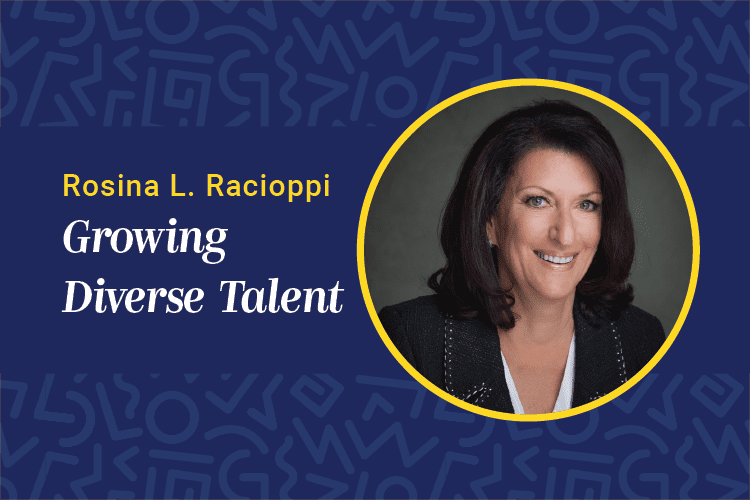 As with all of us, we at WOMEN Unlimited Inc. have had to pivot to meet the needs of various constituencies amid the uncertainty that is reshaping the business world. Fortunately, we’ve been able to leverage a well-known WOMEN Unlimited rule: Don’t do it alone!
As with all of us, we at WOMEN Unlimited Inc. have had to pivot to meet the needs of various constituencies amid the uncertainty that is reshaping the business world. Fortunately, we’ve been able to leverage a well-known WOMEN Unlimited rule: Don’t do it alone!
Mentors have been key players in helping the talented women leaders who attend our programs stay focused on their growth and development, despite bedrock changes to how they do it.
Recently, we interviewed mentors to see how they and their mentees were adapting to these altered circumstances. Here are the highlights.
1. Mentors use a variety of strategies to keep the mentoring relationship powerful, despite being unable to meet live.
All mentors agreed that while a virtual platform is different from “live and in person,” it isn’t a serious impediment to frank discussions about career development. For example, Dave deSimone, an executive adviser, reaches out more frequently to his mentees and makes it clear that he is available to them on an ongoing basis.
Bob Haws, managing director of Willis Towers Watson, frequently provides his time-pressed mentees with short articles from publications such as Harvard Business Review that concisely cover strategies and techniques for management and leadership in the current environment. Haws also emphasizes to his mentees that virtual individual and peer mentoring provide a much-needed “diverse social experience.”
2. These uncertain times offer new opportunities for visibility and advancement.
Mentors pointed out that many of their mentees, encouraged by their mentors and peer groups, have grabbed the moment and used it to showcase their talents and their ability to “lead through ambiguity.” Susan Puglia, retired IBM vice president, reported that one of her mentees, formerly reticent to speak up, realized she had much to contribute in this uncertain environment and has been promoted as a result of helping point her organization in the right direction. Another of Puglia’s mentees, previously prone to frequent, micromanaging visits to various locations that reported to her, has found that things work even better now, as her reports handle things themselves and involve her only as needed.
3. There remain challenges.
While mentors agreed that mentees were successfully adapting to virtual interactions with them and with their organizations, challenges remain. Most notably, the always present need for women to juggle their personal and professional lives is exacerbated when working from home. Andrea Roma, retired AT&T vice president of sales, pointed out that she continually emphasizes to her  mentees the importance of creating “boundaries and balance.” She advises them not to try to do everything every day, and instead manage “direction rather than day to day.”
mentees the importance of creating “boundaries and balance.” She advises them not to try to do everything every day, and instead manage “direction rather than day to day.”
Mentees are also missing live interactions with their peers. “No water coolers. No elevators. No lunches.” It’s isolating and isn’t replaced by virtual platforms. Additionally, one mentor pointed out that assessing the body language of her mentees has been an important tool for her. She is finding that its absence can slow down the establishment of honest dialogue.
4. The major takeaways.
Mentors provided numerous examples of how their mentees are continuing their growth and development in the current environment. Across our interviews, three strategies seemed most prevalent: 1) Mentees are less reluctant (sometimes with an added push from their mentors) to reach out to those who can help with their advancement. 2) After an initial tendency to micromanage, mentees are becoming more strategic and “big picture” because distancing is forcing it and because they are discovering it works. 3) Mentees are realizing that they can’t have complete clarity, something they used to rely on heavily. They are more and more redesigning themselves to fit the ambiguity.
As one mentor put it, “No one has yet been proven in this environment. It is, more than ever, a level playing field that provides a great opportunity to step up and be counted.”
This example, cited by deSimone, seems to say it all. One of his mentees stepped up to drive her company’s worldwide corporate initiative to deliver products to customers amid COVID. When brick-and-mortar stores started to reopen, civil unrest resulted in looting at a number of locations. With some adaptation, she was able to make the processes that worked during COVID work after the looting so her organization could resume serving their communities.
Lesson learned: Developing agility and adaptability in leaders is the name of the game for both individual and corporate growth.












